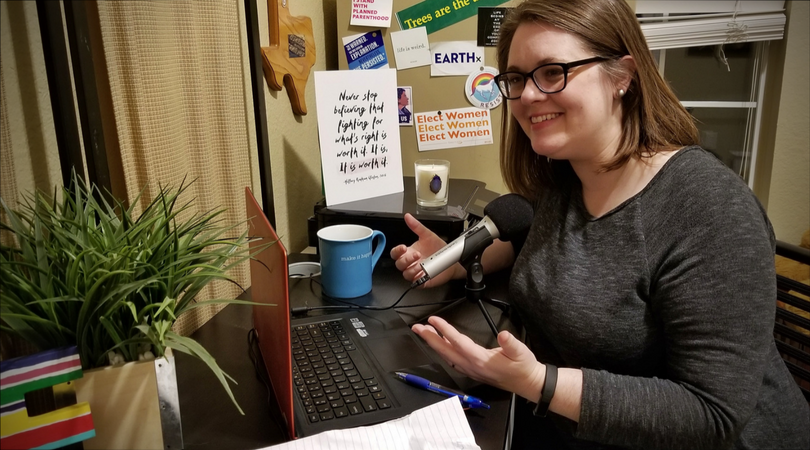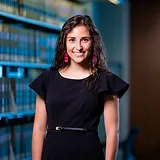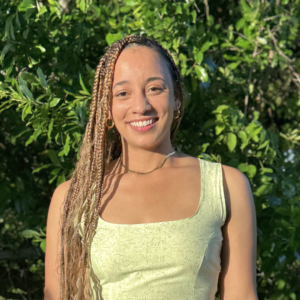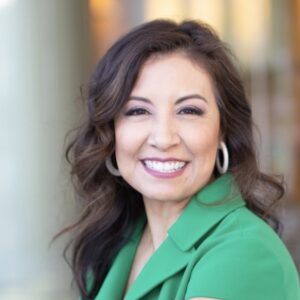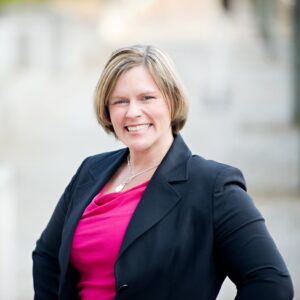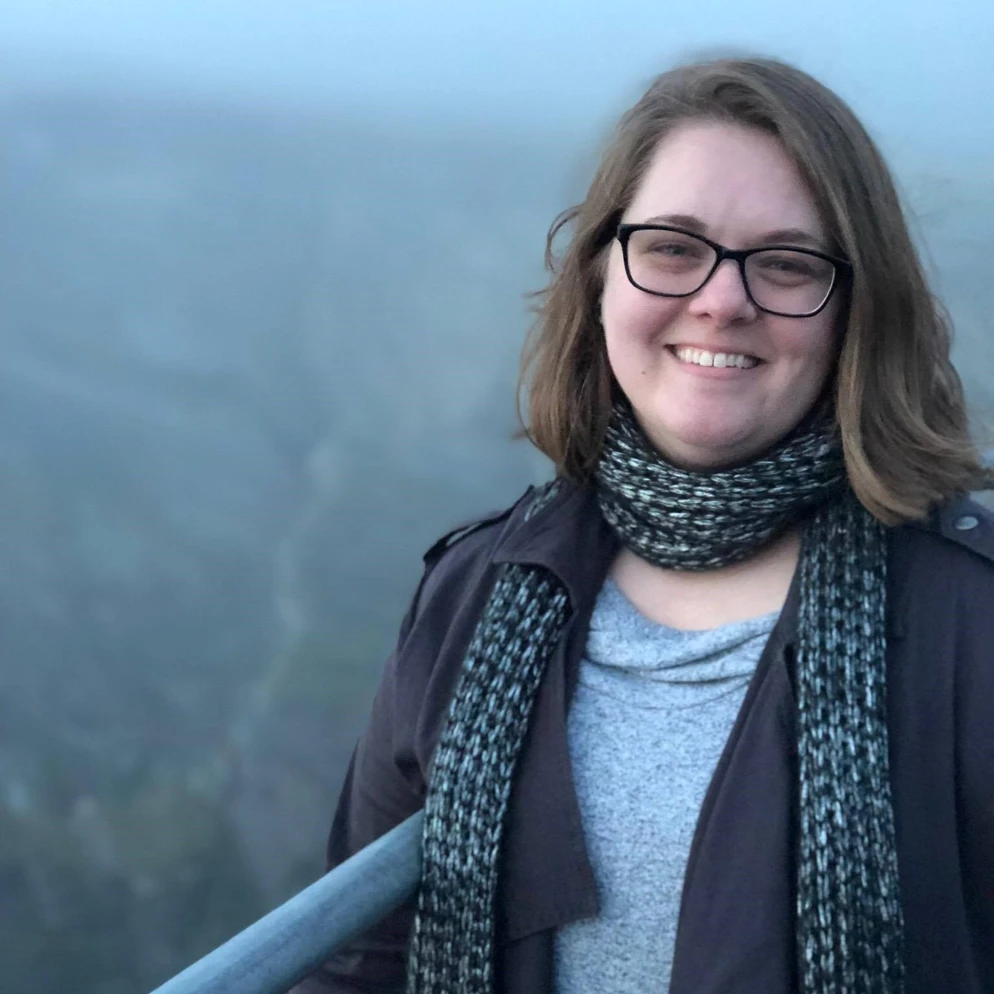
Emily Jackson created the “She’s Running Podcast”, an online talk show that interviews women who are running for office, after the 2016 Presidential Election. She felt that the newly elected presidential administration would perpetuate a cycle of limited representation in government, particularly for women. Early on, Jackson ruled out running for office herself after joining a political incubator; she identified as an introvert, making a life of knocking on doors and speaking to crowds, difficult. Instead, Jackson decided to garner her entrepreneurial skills by creating a podcast, and corresponding website, to share the stories of women who are running. Eventually, Jackson expanded her reach of influence even further by not only interviewing candidates, but also leaders from nonprofits dedicated to electing women like She Should Run and IGNITE National.
Though she interviews guests from across the country, she currently calls Dallas, home. Her journey began in Arkansas, where her family resided in a rural, farming community. Jackson felt that the area she grew up in was neither diverse in thought nor demographics. This led her to begin seeking sources of varying ideas, voices, and perspectives. Jackson began listening to a variety of podcasts focusing on topics ranging from local politics to the Black Lives Matter movement. Eventually, she felt stronger in her depth of perspectives.
Jackson was first exposed to politics during the Presidential Campaign for President Bill Clinton in the 1990s. As a resident of Arkansas, the state where Bill Clinton began his political career, Jackson was very attuned to the campaign. She became fascinated with Chelsea Clinton, daughter of the two-term serving President, as she was close in age to Clinton. This led to Jackson aspiring to become the president one day.
Though she isn’t the President of the United States, Jackson is now the leader of the She’s Running Podcast. She didn’t make it this far alone; she was always able to rely on the internet for assistance. Jackson had no prior knowledge of podcasts or how to create one so she took to the internet to search around for information. Jackson has been taking advantage of search engines, chat rooms, and forums since the age of 13, asking for advice on a variety of subjects. She says that the internet is “perfect for finding groups of people who support you.” Jackson leaves this as a piece of advice: “the questions you have – someone has the answer on the internet.”
Jackson feels her podcast is serving a greater cause, though, than just sharing candidates’ stories: her podcast also advocates for active representation, especially in politics. She hopes that, by broadcasting the inspiring stories of other women, we can begin “getting people in positions of power who actually represent us”, as a country. She believes that voters assume the people who represent their community have only the best of intentions, but this finding tends not to be true. While her show specifically caters to young women, Jackson hopes she can eventually help shift the paradigm of pressure places on all women candidates. Specifically, she advocates for eliminating questions forced upon candidates by voters based on motherhood or physical looks, across all levels of government.
In order to achieve political parity, Jackson believes there are a variety of options that both candidates and voters can implement. She recently interviewed a woman from the United Kingdom who was running for office in one of eight parties. Comparatively to United States parties, her party will only put forth female candidates in different races in hopes of emphasizing the need for more female representatives. The woman she interviewed justified this method through trends that indicate that even if both a woman and a man stood in an election, the man would generally hold a greater percentage of winning. If a party only puts forth a female candidate, devoid of a primary election, there is a greater percentage of equal opportunity for both a male and female candidate to fill a seat. Jackson felt that something radical like the United Kingdom party nomination method could take place in an American political party with hopes of intentionally putting forth more female candidates. She finished the interview by stating “to make a difference, you have to do something drastic.”
